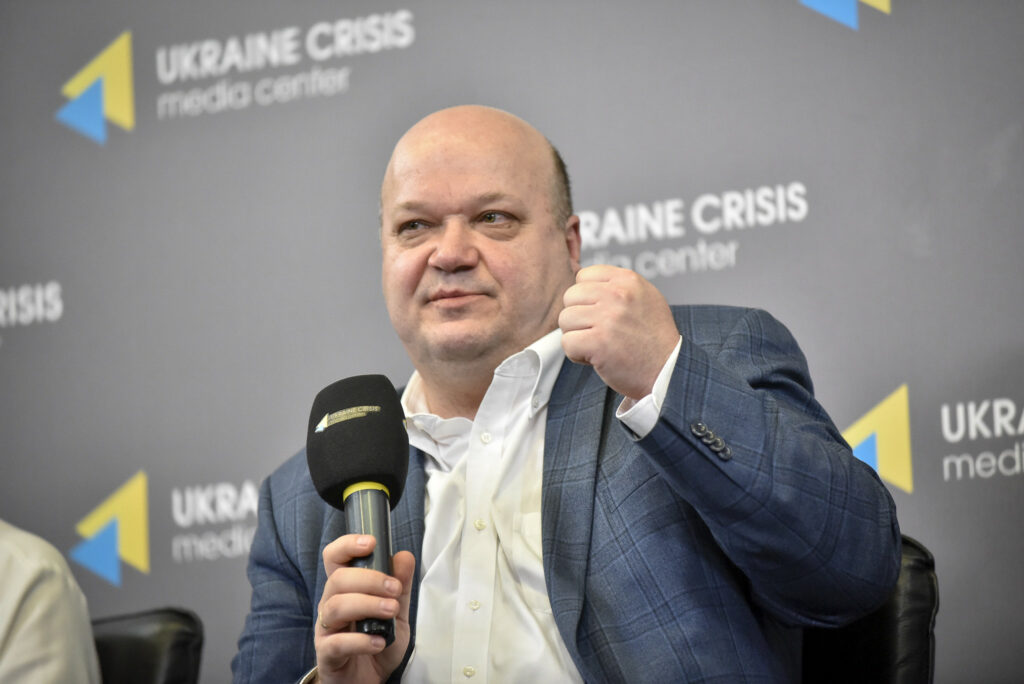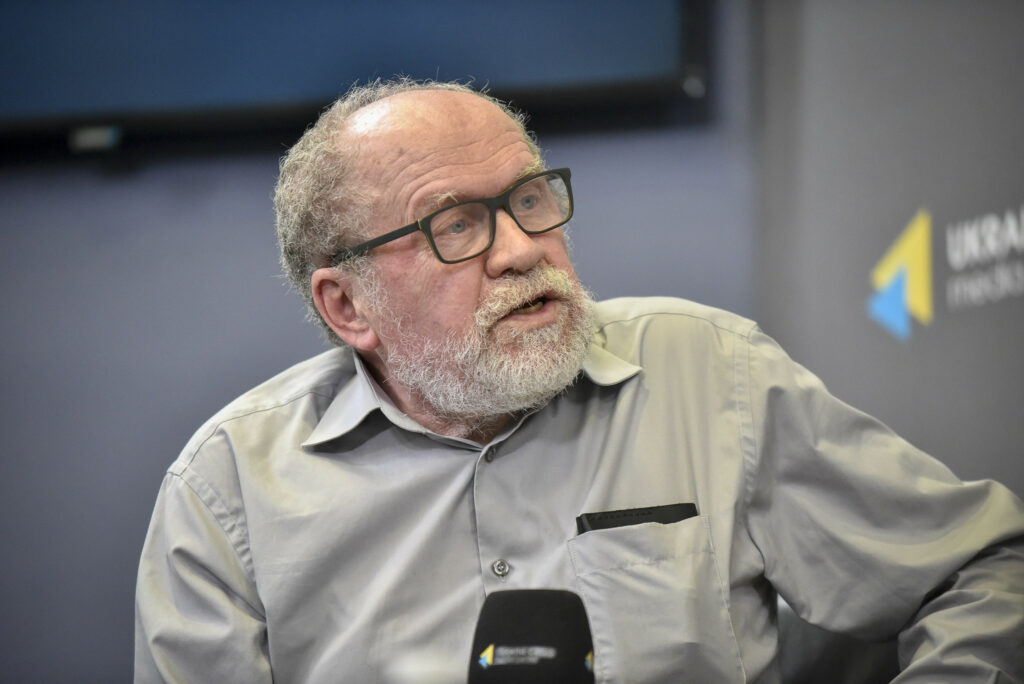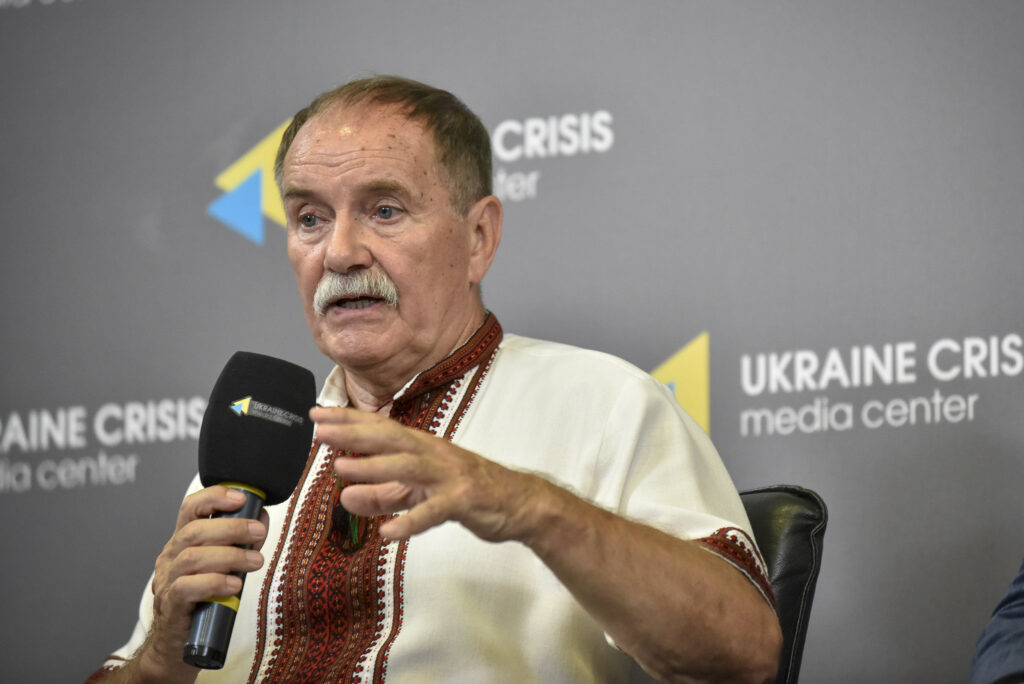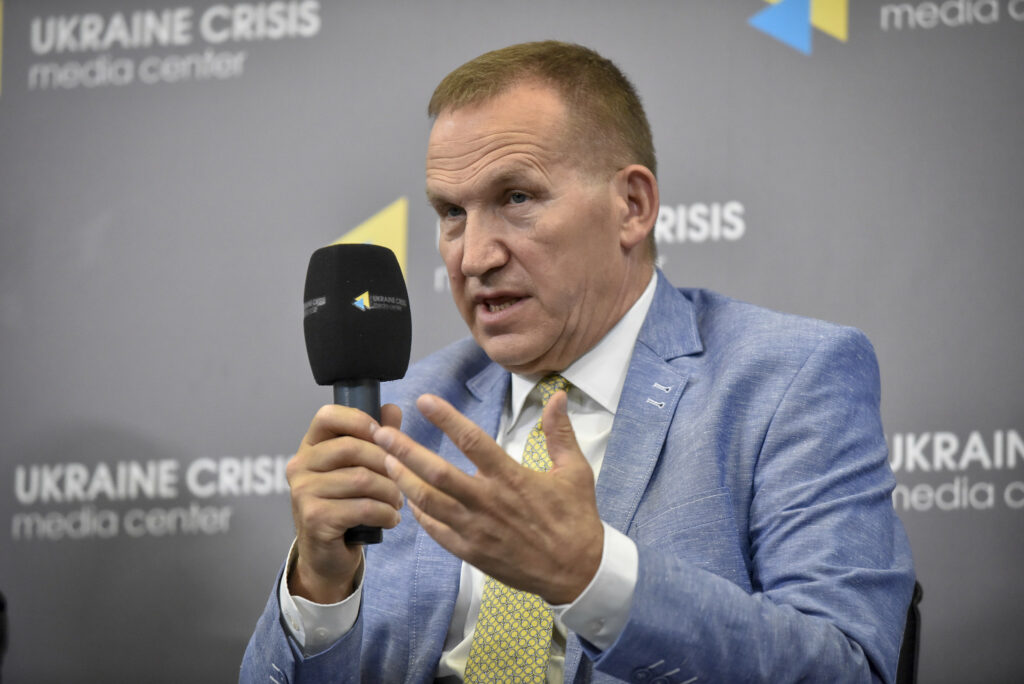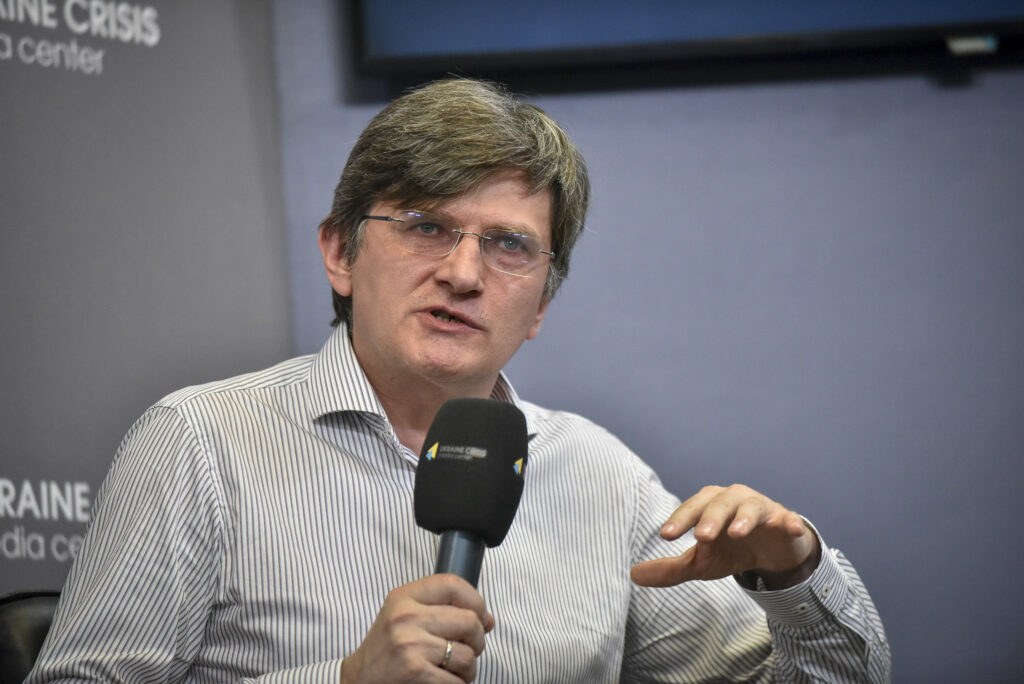On the anniversary of the adoption of the Declaration on State Sovereignty of Ukraine, the Ukraine Crisis Media Center hosted an expert discussion “Legal definition of Ukraine’s neutrality and non-aligned status: myths and realities.”
The discussion began with attempts to explain whether the concept of “Neutrality” is actually enshrined in our legal field. Valeriy Chaly, UCMC Chair of the Board, Ambassador Extraordinary and Plenipotentiary of Ukraine – former member of the National Constitutional Council (2008-2010), Deputy Minister of Foreign Affairs of Ukraine (2009-2010), Deputy Head of the Administration of the President of Ukraine (2014-2015) asked Volodymyr Butkevych, People’s Deputy of Ukraine of the second convocation, co-chairman of the subcommittee of the Constitutional Commission of the Verkhovna Rada of Ukraine on drafting the Constitution of Ukraine in 1995-1996, president of the All-Ukrainian Association of International Law in 1991-1999, Judge of the European Court of Human Rights in 1998-2008, “where did this concept originated from?”
“Some argue that the neutrality of Ukraine is a norm that has remained in our legal field, despite the adoption of the Constitution containing already other provisions. Moreover, they refer to the Declaration on State Sovereignty of Ukraine, the corresponding section of which contains a phrase about the intention to become a non-aligned neutral country. In Soviet times, there was none of this in international law, and suddenly in the 1990s, on the verge of the collapse of the Soviet Union, such a proposal appeared,” the diplomat continued.
At that time, Volodymyr Butkevych’s impression was that this was a purely ideological concept proposed by the Moscow special services rather than a political and legal one.
“As an international law expert, I remember well that this is the least developed institute of international law as of today. And if someone says that there is such a norm for Ukraine, let him explain me. If you carefully read everything that has been published on the institution of neutrality until today, you will find arguments that were made in the 19th century mainly for the neutrality of Switzerland. All those arguments can be of interest only to a historian of law. After the war, U.S. Secretary of State Dulles, said that in our time, when two such opposing powers as the United States and the Soviet Union are fighting each other, neutrality is an immoral conception to say the least. It seems to me that today it is also immoral. Ukraine entered into such contractual and legal relations during this war that it would really be immoral on the part of our partners to say that they are permanent neutral states and cannot meet our needs. At a time when claims are made to our territories, telling us that this is a reason for us to become a permanent neutral state is rather a reason to read the Criminal Code of Ukraine,” he said.
Ivan Zayets, People’s Deputy of Ukraine of the first, second, third, fourth, and sixth convocations, member of the Temporary Special Commission of the Verkhovna Rada of Ukraine on the development of draft laws of Ukraine on amendments to the Constitution of Ukraine, Minister of Ecology and Natural Resources of Ukraine in 2000-2001, member of the NSDC of Ukraine in 2000-2001, informed about the dangers of promotion of this topic by different actors.
“There is allegedly such a norm in the legislation. In fact, there is none. Initially, it was about the intention, and later the lawmaker completely abandoned this intention. At first, the process was normal. We formed our course towards NATO, the European Union, and nobody recorded neutrality as a legal norm. However, the fifth column, of course, worked,” the politician noted.
According to him, Ukraine should knock on the door of NATO in a different way than now. “We must directly tell our Western partners that without integrated Ukraine, they will never have safe Europe,” suggested Ivan Zayets.
Russia constantly tried to squeeze the concept of neutrality into the Ukrainian political and legal field. Valeriy Chaly, for whom pressure from the side of the Kremlin at one time resulted in his resignation from the post of deputy minister, remembers such manipulations well.
“Initially, the changes planned did not touch the basic issues, which were in a different plane. I remember exactly that there was a mandate and we issued it in such a way that Ukraine, as a de facto non-aligned country, reserves the right to decide its security model in the future sovereignly, and this formula suited President Yanukovych and his entourage. A week later, during a collegium, we all were very happy that there were no basic changes. And then they read it in Moscow and reprimanded the president of Ukraine, sent several secret documents that related to even more radical changes in foreign policy,” he recalled.
In 1995-1997, Ambassador Extraordinary and Plenipotentiary Oleksandr Motsyk worked as the head of the Contractual and Legal Department of the Ministry of Foreign Affairs of Ukraine, and later, in 2004-2005, as the First Deputy Minister of Foreign Affairs of Ukraine for European Integration. He believes that the mention in the Declaration of the intention to become a neutral state at that time was definitely a positive point.
“We told the world that the Soviet Union and Russia, as its main successor, retain nuclear status, but we do not retain this status and talk about neutrality, because we have no place in this club, and we have every right to declare independence or restore independence. But nothing in this world stands still. Then the Ukrainian state, the Ukrainian government and the Ukrainian people managed to decide on their further conceptual development and path, and this development was recorded in the Constitution in the form of provisions that Ukraine will become a member of the European Union, and in the context of security, it strives to become integrated into NATO,” Oleksandr Motsyk explained.
During the discussion, it became necessary to comment on the constitutional interpretation of the territorial issue. Andrii Mahera, Deputy Chairman of the Central Election Commission of Ukraine in 2007-2018, constitutional law expert of the Center for Political and Legal Reforms expressed his view on this.
“If they talk about about freezing, concessions of some territory or, say, granting some indefinite status to the territories that are currently under Russia’s control, and at the same time refer to Article 73 of the Constitution of Ukraine, then I would like to remind you that it says that the Verkhovna Rada of Ukraine appoints an all-Ukrainian referendum on changing the territory of Ukraine, but the Constitution of Ukraine is a single coherent document. There it is impossible to pull out an article and consider it as a thing in itself. It is interconnected with all other provisions. For example, if we take Article 2 of the Constitution, where the sovereignty of Ukraine extends to its entire territory, the territory of Ukraine within the existing border is integral and inviolable, and the changes to the Constitution of Ukraine, in particular in the list of areas of the regions, which are in the section on the territorial structure of Ukraine, are not allowed. Then the question arises: how to understand Article 73 of the Constitution? To date, we do not have an official interpretation of this issue by the Constitutional Court, but I will allow myself to express the assumption that Article 73 of the Constitution should be understood as such that, subject to strict observance of generally recognized principles and norms of international law, other states or territories may be added to Ukraine or other states on the basis of various international treaties in strict accordance with international law. And in such a case, the Verkhovna Rada of Ukraine can appoint an all-Ukrainian referendum on changing the territory of Ukraine, listen to the opinion of Ukrainian citizens,” explained the constitutional law expert.
Summing up the discussion, the UCMC Chair of the Board stated that such an expert analysis allows us to call specific actions to implement non-aligned status or neutrality anti-constitutional.
“Scientists can talk about it, an official cannot. He must comply, and not decide whether to go to Brussels to the summit or not, – noted Valeriy Chaly. – We need to turn this pyramid upside down. Those who repeat the mantras of Putin, who is showing the presidents and prime ministers of African countries that look, Ukraine has agreed to something, these positions of neutrality are firmly established, feel too free now. There can be discussions, but not in the political plane. The informational imposition of these ideas began very quickly. We don’t need it because it can lead to very dangerous things.”

